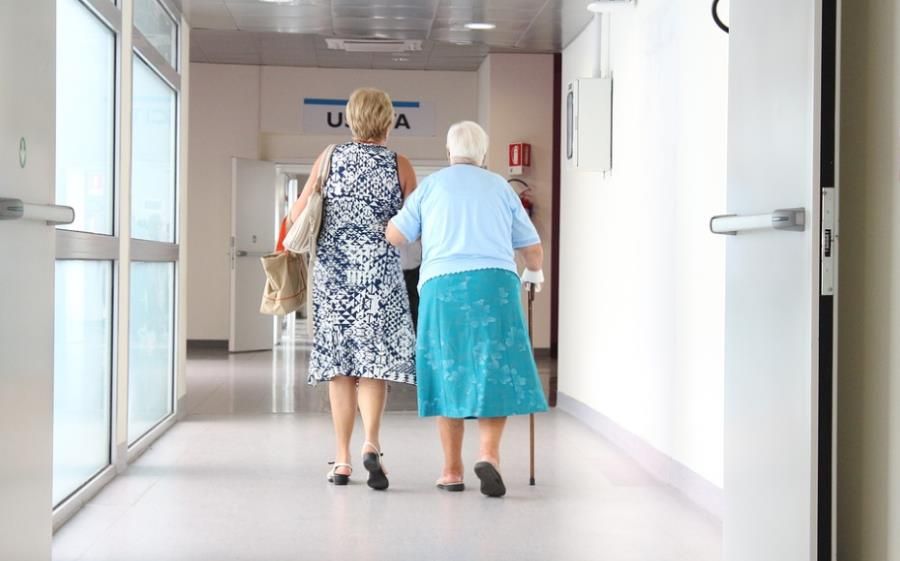When we can and should take advantage of specialized testing in the UK
Although in most situations the path to treatment or diagnosis of a disease in the UK begins at the GP’s office, it is not always enough. A visit to a specialist is as possible and often advisable. It is also worth taking advantage of free tests to detect diseases. Find out what it looks like in practice and when you can benefit from specialized testing in the UK.
Let’s start with Faecal Occult Blood and Bowel Scope Screening, które conduct the screening yourself, at home, using the FOB kit. It is issued free of charge to all men and women between the ages of 60 and 74. The goal is to detect possible blood in feces, która can mark cancerór of the large intestine. The test is available to all program participants every two years. Of course, one receives free instructions and all the necessary information.
For women over 55. years of age have been prepared róalso a test called Bowel Scope Screening, involving a nurse- or doctor-led examination. A special tool they use allows them to detect polyps, whichóre potentially capable of turning into neoplasmsór malignant.
How to join an early detection program for bowel cancer? Contact NHS Cancer Screening Programs in Sheffield. Address: Fulwood House, Old Fulwood Road, S10 3TH. Phone: 01142013040, e-mail: [email protected]. For more information on the program, visit the official government website at https://www.gov.uk/guidance/bowel-cancer-screening-programme-overview.
It’s worth studying the body
The program to check whether we have the very troublesome and painful colorectal cancer is one example of aów on how the health care system in the UK works. If you live in the UK, do not hesitate to take advantage of the availability of specialized tests, whichóre when meeting certain criteriaów (e.g. age) cost nothing!
A visit to the family doctor may not give the answer to whether there is already cancer in the bodyór malignancy, but an appointment with a specialist – like. Full list of free programsów conducted by the NHS is available at https://www.gov.uk/topic/population-screening-programmes. It is worth pointing out such important tests, such as.:
- retinal examinationóeyeballs → diabetic eye screening;
- prevention of abdominal aortic aneurysm → adbominal aortic aneurysm;
- breast mammography → breast screening;
- cervical cytology → cervical screening.
As you can see, someóre of these programów are analogous to those conducted in Poland, e.g. towards women whoóre completed 50. year of life. Leaving for work or other circumstances should not mean giving up on health concerns. Get tested with your age and predisposition in mind. It is better to take advantage of the free test in advance than póThen worry about advanced disease. Britain’s health care system extends a hand to all citizens using the NHS. Don’t limit yourself to GP visits, sometimes it’s worth pógo to a specialist.
For children and pregnant women
With the help of specialistsów should of course also benefit pregnant women and young mothers. There is a whole range of programóin, whichóre enable detection of chorób or possible health complications.
- Newborn Blood Spot → A blood test from the baby’s heel up to 5 days after birth to check for the presence of sickle cell anemia, congenital diseaseób metabolic diseases, hypothyroidism or cystic fibrosis;
- Newborn Hearing → Hearing screening for children, preferably between 4. a 5. weeks after birth;
- Fetal Anomaly → Fetal ultrasound;
- Infectious Deseases in Pregnancy → test for pregnant women to detect HIV, ¿óB-type hepatitis, róvenereal or syphilis;
- Sickle Cell and Thalassaemia → Genetic test to detect sickle cell anemia, thalassemia and similar diseases related to hemoglobin in the blood.
About this type of program for pregnant women and newbornsów can ask the NHS Population Screening Helpdesk, at Public Health England Zone B, Floor 2 Skipton House, 80 London Road, London (SE1 6LH). Phone: 02036820890.
Consultation with a specialist
To see a specialist – e.g. A neurologist if you have a constant headache or a urologist if you have a urinary problem – You need a referral from a GP, or General Practitioner. Hence, the simple conclusion is that in order to get a referral, you need to register with a clinic and umóconsult with your family doctor. Fortunately, in the NHS system it should only take about 1-2 days to get such a referral.
Unfortunately, there is not always a chance to see a specialist on the NHS. If this is not possible, a private visit remains. It involves costs, but remember that health is priceless. Interestingly, more and more Polish outposts are being established in the UKómedical centers, or specialized clinics run by our native doctors. A Polish-speaking doctor is able to conduct an in-depth interview without a language barrier, which is why so many expatriatesów chooses this form of treatment and consultation.
The price of a private visit or a specialized examination at such a clinic usually costs from a few tens to a hundred poundsów. Of course, the most expensive are dental procedures, whichóre usually cost around a few hundred poundsów, so Poles living in the UK prefer to wait until they arrive in their hometowns to pay for the necessary treatment much more cheaply and in Polish zlotys.
